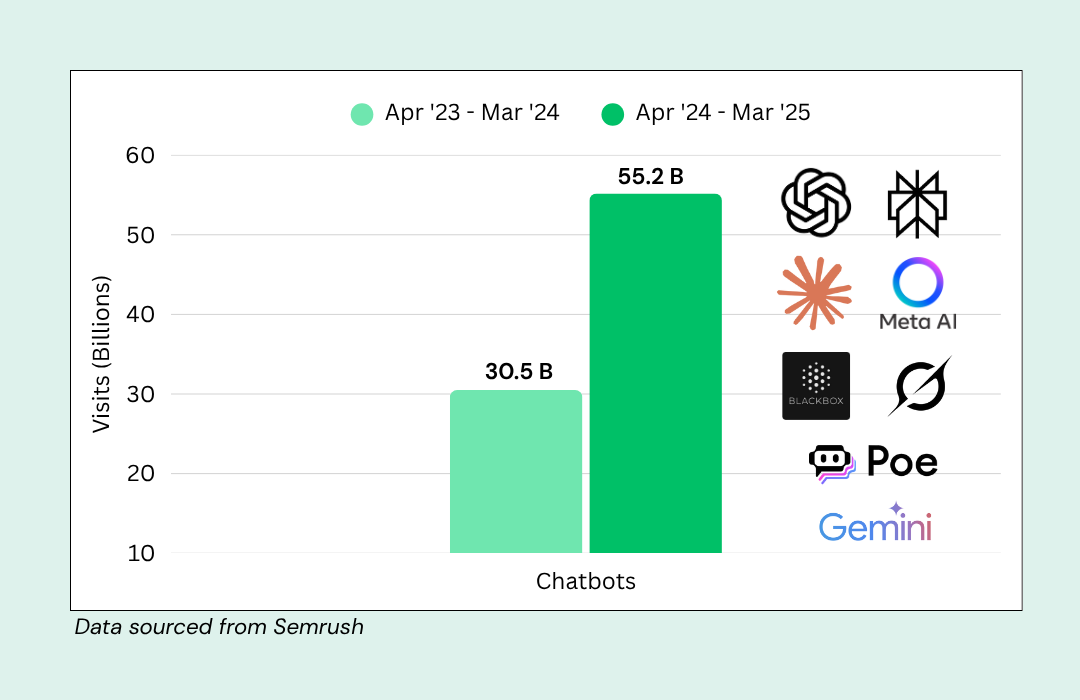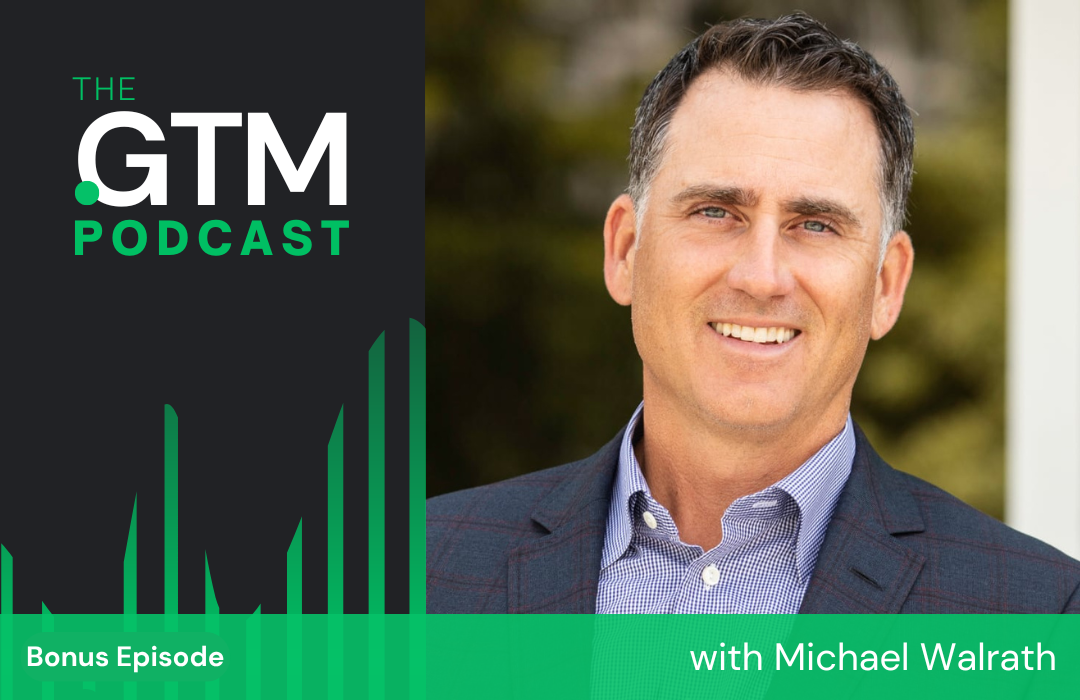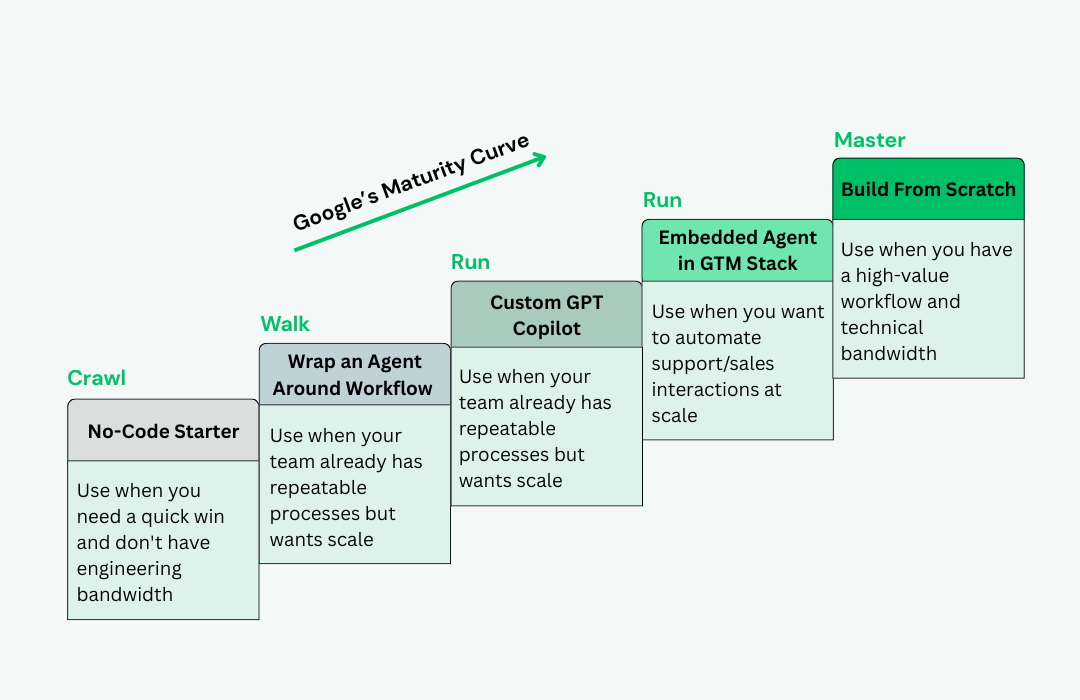Editors Note: Panelists Jon Birdsong, Ralph Barsi, and JM Hood from the How To Avoid SDR Burnout Webinar answer questions on the topic.
1. What types of follow-through steps would you take if a SDR is not meeting metric expectations?

Jon Birdsong: First step is to be very proactive and monitor performance weekly. The worst is not communicating with the rep when they are underperforming. Many managers throw them on the chopping block with mismanaged expectations and a lack of communication. Follow-through steps include: questioning them about their performance so they understand why they are struggling. Great managers say, “give me effort or give me results.” If the effort is there, then I can make you into a champion. Once you understand why you’ll be able to steer them into the right direction of growth and development.
Ralph Barsi: I would talk with the SDR, one-on-one, assess what’s going on in their head and heart, and determine answers to questions like:
1) Are they clear on the outcome we’re pursuing as a team?
Leaders should speak in terms of macro and micro here. For example, on a macro level, highlight the company’s growth trajectory, and underscore the importance of the sales development function. Show how SDR’s literally put fuel in the company’s engine by building revenue pipeline.
On a micro level, talk about the SDR’s growth trajectory; and how critical this time is in their career. Right here and now, they’re becoming a sales professional – learning, developing, and mastering skills that will serve them years from now (prospecting, speaking to executives, business writing, analytics, networking, to name a few).
2) Can they comprehend why the metrics are what they are?
Talk to them about leading indicators vs. lagging indicators, share best practices from other sales development teams, and illustrate how your team’s metrics “roll-up or roll-in” to larger company metrics (think OKR’s, for example).
3) How well do they plan their days and weeks?
Have them print out their weekly or monthly calendar. Look at the calendar with them and make sure their time is dedicated to the right areas.
For example, they could use Mondays and Fridays as “administrative days,” specifically to research, follow-up on emails, address high-priority leads or tasks, and internal meetings. Tuesdays, Wednesdays, and Thursdays are sacred prospecting days (heavy phone time). Leaders don’t want researchers and librarians – they want selling machines; so they shouldn’t schedule any 1:1’s or team meetings Tuesday through Thursday.
Then, while the competition sleeps in, watches TV, and parties, your SDRs use Saturdays and Sundays as quiet time: to be still, exercise, read books and blogs, recap the previous week, and prepare for the following week. That’s how winners roll.
Take this discussion seriously and give the SDR the benefit of the doubt. Most times, they just need to make a simple tweak – in their daily planning, or the length of their emails and voicemails, or their overall attitude – and they’re back on track.

JM Hood: Agree with JB / RB on finding the why and having faith in the SDR while addressing immediately. After asking the questions Ralph mentioned, it may be apparent that they may not fully know the issue. The SDR may not fully understand what the issue is. Take time, sit down with them and watch how they do their work to work together to diagnose. These discussions are really important to track weekly and it’s important to be patient while you work together to fix as fast as possible.
2. Can you talk about the importance of having executive buy-in for your SDR team?

RB: Executive buy-in is imperative, but won’t happen unless there’s a scalable, repeatable process in place. Senior leaders and Board members need to rely on a consistent, predictable sales development engine that produces.
Executives should also get to know each SDR (especially the seasoned ones), and vice versa. Team leaders can make this happen by inviting execs to an SDR team meeting, for example, or making sure execs meet SDRs at a tradeshow, where the SDRs are “working the booth.” There a lots of ways Executives can connect with the sales development team.
It’s important because SDRs likely need executives to broker introductions to key prospects. An already-existing relationship with the executives makes it a much easier ask for the SDR, while also giving the SDR an opportunity to build credibility and rapport. When that occurs, you’ve created a win-win situation.

JM: It’s key that executives understand the importance of the team and see the results. Because they are the future of the org, the executives should take time to get to know the team. A simple lunch, coming to the team meeting, sending a short email, etc. As RB mentioned, there are a lot of ways to get to know them.
Equally as important that the execs believe in the team is that the team believes in the executives. It’s critical that the SDRs feel a connection to the mission and values of the org and that their work is making a major impact.
3. What do you think about short term incentives- I know a company that gets summer Fridays (off at 12pm) if their sales team hits a goal. Do you think incentives work to keep your SDRs motivated?

JB: I subscribe to Daniel Pink’s methodology in his book: Drive. Mastery, Autonomy, Purpose are what keeps motivation sustainable. Yes, some short term incentives work, but great managers have to be creative and constantly throw new ones in the mix.

RB: On one hand, I’m down with short-term incentives, as long as they range from in-the-moment recognitions, to cash money for executing well on a campaign, to cutting out early for hitting a daily or weekly target.
On the other hand, I don’t want to set an expectation that SDRs get something every time work needs to get done. They’re paid handsomely for their work, in overall compensation earnings, benefits, and career development. I think everyone (the team and me) gets more motivated, anyway, when long-term incentives are at play.

JM: Short-term incentives mean a lot, however it’s important it doesn’t become so common that the SDRs will expect something every time they need to work. It’s important that we all take the time to motivate them in different ways to teach them the skills to be successful throughout their sales careers.
4. How do you assign personal accountability to the SDR as opposed to reactive response?

JB: Put a goal around an activity. Make sure their activity is transparent to the team via daily emails and leader boards.

RB: Real leaders breed leaders. Teach SDRs how to lead by example. Show them, every day, that you’re a leader of integrity, passion, commitment, responsibility, accountability, and execution. Remind them that they’re not just selling your company’s product or service, but shaping their careers.
Real leaders serve others. SDRs represent the front line; and are the first interaction, in most cases, prospects will have with your company and its brand. Give those prospects an inspiring first impression!
SDRs need to take pride in serving the marketplace, the team they’re on, the company, and their own professional selves. When your SDRs believe in the greater purpose of their work, you won’t need to worry about their personal accountability or reactive responses.
5. I manage a team of 8 SDRs in NYC- How much does comp plan play in to burnout? What are your findings here of paying out on a closed deal and/or opening an opportunity for a AE/SAE?

RB: The comp plan should not lead to burnout, especially if your company offers a competitive package. Here in the Bay Area, we don’t really have a choice, since the market is hot and everyone needs SDRs. If we don’t have the comp plan dialed, we won’t attract the best talent.
Regarding payout for sourcing Closed Won opportunities, it depends on your deal size and sales cycle. If you’re a more transactional model, where deals go from start to finish every month or quarter, then compensating SDRs for creating the opportunity makes sense.
If you’re a more consultative model – selling to the enterprise, for example – and deals take 12 to 18 months to close, it doesn’t make sense to pay SDRs for the opportunity. Instead, you may want to pay x% of their variable for booking qualified meetings, and pay y% of their variable for creating qualified opportunities from those meetings. Remember, qualified opportunities will require specific criteria (think BANT or ANUM) that SDRs, AEs, and leadership agree on.
6. What questions are you looking for from your SDRs on the one on ones? and are you looking for them to come w a plan?

JB: One on Ones give each direct a platform to allow them to communicate to you. When you hold one on ones, it proves you care, invest in the relationship and the direct report will always have time with you. At Rivalry, we follow the 10-10-10 rule from the Manager Tools team. 10 minutes for the direct report. 10 minutes for the manager. 10 minutes for the future. The One on One flies by! More details on the perfect structure of the one on one.
- The SDR should always come with a plan.
- Ask questions that are not in the CRM. The One on One is not a weekly status update!
- Examples include: What was your best conversation this week? Why?
- What was your worst conversation this week? Why?
- What the one thing you want to learn this week (process, customers, product)?

RB: First off, I suggest holding 1:1’s no less than twice a month. Depending on the size of your team and logistics (people working remotely, traveling, etc.), meeting once a week is ideal. The 1:1’s should be brief (no more than 30 minutes) and always have an agenda.
And try getting outside and walking around the block. Sitting in the same old conference rooms with laptops and boring dashboards in front of you sucks. Motion causes emotion, so get outside and walk around the block. You’ll find both of you are a little more calm and focused on what matters most.
Zoom out at the start of the meeting (talk about the marketplace, progress towards corporate goals, or team-specific topics). Before the 1:1 ends, zoom in (ask how the SDR is feeling lately, their progress towards the quarterly goal, and areas of improvement). At least two 1:1’s per quarter should center (solely) on career development. Questions I expect from SDRs should relate to all of the above. There should always be a plan. Otherwise, it’s like kids playing at recess.

JM: The 1:1 should be dedicated to them and the skills and topics they would like to discuss. I expect them to come prepared to the 1:1, filling out their analysis the day prior so I can also come prepared with tailored topics to discuss.
7. How do you structure your team meetings and how often do you hold them?

JB: Team meetings, Weekly. One on one meetings, Weekly.

RB: Team meetings should be held once a week, for no more than 30 minutes. If they go longer, the leader may be majoring in minor things. Thirty minutes is plenty of time to cover the essentials.
The structure should include a 3-5 point agenda that could cover a range of topics (KPIs, a great blog article, an upcoming spiff or trade-show, conversation starters, the office vibe, progress towards goals, etc.). It must be interactive, so ask the team open-ended questions and engage them.
8. I think we’ve all experienced SDR’s who are top performers BUT don’t follow the rules very well, which can put you in a bind as a manager because they’re setting a bad example but also doing incredibly well. How do you deal with that and where do you draw the line?

JB: Does them not following the rules break the core values? If so, how long will you sacrifice culture at the expense of results?

RB: What Jon said.

JM: Agree with both. Also look to see if they are doing something that’s working that is different, should more people be doing it that way?
9. Any chance that some of these management tools could be shared? the One on One doc sounds like a great tool!

JB: www.rivalry.com
10. Do you have any experience with personality traits that have been more successful than others as far as not burning out?

RB: I do, indeed. I work hard to attract and hire people with those very traits. Every successful SDR I’ve managed has been on a mission. Among many different traits, my successful SDRs are:
- People of integrity. They earn everyone’s respect through sick discipline and work ethic. They come with “five nines” (99.999%) of reliability and I never worry about them missing a step
- Great communicators. They invest the time required to write brief, concise, engaging emails. They email me on Mondays with how they plan to scorch the week ahead, and again on Fridays to recap how well they did and highlight what they still need to improve. (No joke.) They also collaborate with other teams (demand gen, product marketing, account executives), sharing real-time feedback and helping with campaigns
- Self-starters and self-motivators. They know their purpose and who else (in and out of the office) benefits from their success
- Not little [punks]. I never hear them whine or complain. They’re typically happy and maintain positive attitudes, and are the first ones to rally the whole team when the quarter gets rough. They’re confident in their capabilities and think in terms of solutions, not problems. They have fun and keep it playful
- Vulnerable. They know they’re students of the game, and are shameless when it comes to seeking advice, feedback, and help.
11. How do you motivate an SDR to keep pushing after they’ve hit their quota for the month?

RB: Teach your SDRs to expect success. So, when an SDR hits their monthly quota early, make sure to recognize that rep in front of the team. Congratulate them for their hard work, and privately tell the rep they’re making excellent progress towards their personal and professional targets (I assume you know what those are through solid 1:1’s).
Remember, though, to keep it real. Unless that rep has a fat pipeline, the next month(s) and quarter(s) will arrive fast. Great SDRs know how to sustain their success, and drive up and to the right month-over-month, quarter-over-quarter. Hitting goal early means they can benefit from accelerators, inspire their peers, and get ample time to prepare for the following month.

JM: RB has some great points! To piggyback off that, it’s also working with them to help them understand that pushing through after hitting quota is a really important skill for their careers.
12. How much do you emphasize on providing an incentive for top performers, in an effort to avoid them breaking culture?

JM: I don’t create a special incentive for top performers that’s different than the others. Culture is what you create. The second someone starts to break it whether it’s a top performer or not, it should be immediately squashed.
13.Do you think metrics should be sent out to the team daily? weekly? or just shown to individual reps in one on ones? Do you think metrics are a good motivator for healthy competition?

JB: Sales is not a quarterly update, a monthly checkin, a weekly meeting, or even a daily standup. Sales is an hour-to-hour battle between you and your competitor. Depending on the nature of the sales role, metrics should be very transparent. Since we’re focused on SDR’s, daily metrics to each rep is perfect. It is not different than our favorite athletes putting up numbers when it comes to sports. Imagine if Lebron played a game and no one kept track of his points, rebounds, assists, etc. We are professionals. This is our daily profession. Metrics matter and should be showcased through a company who prioritizes transparency and accountability.

JM: When SDRs are first starting, it’s important to guide them to think of metrics at every turn. Think about metrics in all 3 ways:
1. Daily: Each day, ask the team and individuals questions out in the open about certain metrics in different ways. For example, instead of asking every day, “How many emails did you send?” You can ask the SDR to tell you about a win they had on their emails or goals for the 1st half of the day. They will make these goals a habit and it’s then important to trust them to do these each day. It can start to feel micro-managey if it’s too often.
2. Weekly:
- Each week, have them do a deep dive of their metrics in their 1:1 doc. You can then discuss questions such as, “What does my conversion rate tell me? Why am I not getting opens in my emails? Why did I crush it this week and not last?” Everyone is different and will have different challenges, so it’s important to motivate and work with the SDR on an individual level.
- I also recommend doing weekly team numbers. [and if you have offices across the globe / country, calling out huge wins, overcoming challenges] It’s critical the team learns from each other and they help light a fire for each other. If someone is dominating, they can learn why. If they haven’t been pulling their weight, they can easily see they took their foot off the gas.
3. Quarterly Deep Dive analysis: Talk about where the team has come from and their goals for the following quarter. Celebrate the metrics wins and what we learned in the quarter. SDR can be a grind and resetting the mission and spanning out to a 20K foot view of the team can help them reignite their fire and get ready to rock.
14. Top books to have your SDRs to read?


RB: Here are ten powerful ones. If I were you, I’d order them right now.
Thinkertoys (Michael Michalko)
Develop your creative and critical thinking skills. You already have the answers to your problems.Every chapter starts with a quote from Sun Tzu.
The 10X Rule (Grant Cardone)
To achieve what you want requires ten times the thoughts and actions you’re doing today. If you’re choosing not to increase your scope, then you’re like everyone else.
Predictable Revenue (Aaron Ross, Marylou Tyler)
Teaches the fundamentals and mechanics of sales development. Reveals the architecture for the top-of-the-funnel engine built by Salesforce.com.
Hacking Sales (Max Altschuler)
There’s likely a faster, easier, better way to do your sales development work. This book educates you on powerful tools that enable you to win.
Agile Selling (Jill Konrath)
While you read this list of suggested books, the marketplace is evolving. People buy differently than they did just yesterday. This book shows you how to adapt your selling acumen in this constantly-changing world.
21.5 Unbreakable Laws of Selling (Jeffrey Gitomer)
These are laws. They’re statements of fact. They will always occur if certain conditions are present.
Money: Master the Game (Tony Robbins)
When you’re successful in sales development, you’ll become successful in sales. When you’re successful in sales, you’ll earn lots of money. Here are 7-steps for securing your financial freedom.
The Ultimate Sales Machine (Chet Holmes)
The late, great, legendary Chet Holmes shares the mechanics of building an exceptional sales culture. He centers most of the book on the power of focus, which is at the core of all winning SDRs.
Wooden on Leadership (John Wooden)
Jon Birdsong mentioned this book on the webinar. If every player on the team plays to the best of their ability, the team won’t need to look at the scoreboard or talk about winning.
What Matters Most: The Power of Living Your Values (Hyrum Smith)
Tie everything you do into your purpose.
What the CEO Wants You to Know (Charan)
What CEOs worry about is timeless and industry-agnostic.
15. What was the Jack Welch resource that Ralph mentioned on 1:1s?

RB: I think it was Jon who mentioned Jack Welch. However, Jack is a major influence on my management style. I’ve built and led several sales development teams. Over the years, I’ve continued to reference this talk that Jack Welch gave the Stanford Graduate School of Business. It is chock full of value, so take notes: https://bit.ly/Welch-Candor.
16. Sales is very individual but a good team that supports each other can help everyone perform better. How do you make sure that you have a strong team where people aren’t just worried about themselves and their own goals? Do you think competitions work well within a team or multiple teams against each other?

JB: Create team goals. That is a must.
17. What are your favorite interview questions when vetting for a good SDR?

JM: Get them to tell you what’s not on the resume. It’s not so much about having a specific list of questions as every interview, just like a person, will be slightly different. Instead, spend time before the interview thinking of what specific traits you’re looking to solve for and what questions you can asked based on their resume.
18. How do you as a manager deal with the “one-upper” on your team? or the SDR that will “walkover” a teammate for a win?

JB: Coach them on the effects it has on the team, that person’s reputation, and the ramification of being a tool.

JM: Talk to them immediately about it and don’t be afraid to be blunt.
19. In an organization where the SDR is a new role, and some of the older higher up’s don’t fully understand the concept, and view the position as a high volume call center, what is the best way to convey value and get people on board with trusting the processes?

JM: Take time to align expectations with the higher ups. For example, why do they care about a high volume of calls? Is it because they think that will lead to more appointments. Figure that out first and then you can create a plan for the team.
Sometimes, you have to show people results before they understand a process may work. Do a test on your team – take 1 SDR to test one process and another SDR to test the high volume process and let the results speak for themselves.
20. I think the sales process is broken. I sell to engineers they never answer the phone ever. They only respond to me when they have a business need. We have good results inviting them to events that they learn from, but getting meetings has been just not happening. I am an account manager and my SDR’s cannot get me any meetings. What do I do?

JB: You really have to get creative for Engineers. I have seen SDR’s only send puzzles as a way to get meetings. Leverage art, storytelling, and problems in your approach. They laugh at lazy emails so make sure your SDR’s are really good at writing. Calling is a waste.







